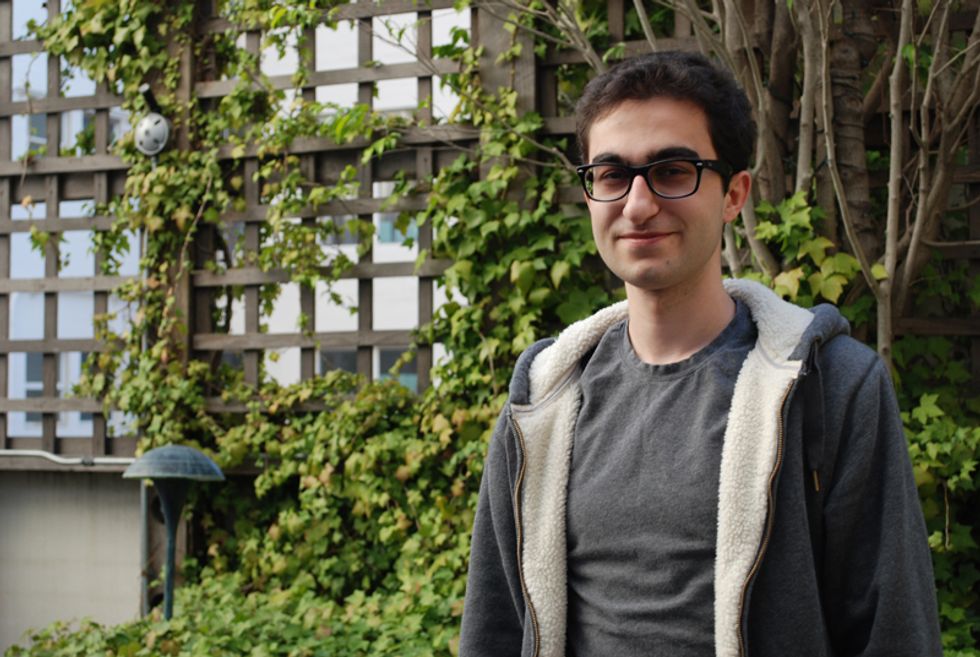If this is the first time you've heard the name Darian Shirazi, it's a good bet it won't be the last.
The 24-year-old UC Berkeley dropout heads up a Soma-based operation called Fwix, which is an early leader in what he calls the "fourth wave" of the Internet -- local search -- or "what's nearby, right now."
Under this formulation, the first three Internet waves were directory, search, and social media. Shirazi's tiny company (19 employees) appears to have opened an early technological lead on corporations that are trying to catch the same local search wave like AOL’s "Patch" and Google’s "Places," among others.
The idea, essentially, is to bring you the hyperlocal - the best information about what is happening right around you in as close to real time as possible. It depends on identifying content that has been accurately geo-coded. That presents an extremely difficult technical challenge.
First, let's back up a second. In the spirit of full disclosure, I'm an advisor to Fwix, and I'm also biased, to a certain extent, toward startups when they battle against large companies, just so you are fully aware of my biases before continuing this story.
After Shirazi dropped out of Berkeley, two years into a joint major in philosophy and computer science, Shirazi and a friend took a tour of Eastern Europe by train.
Somewhere in Croatia, he became frustrated by two problems -- he couldn't find out what was going on around him in Croatia, and he also couldn't get access to enough of the news he wanted back here in his home town, thanks to the massive layoffs then occurring at the Hearst-owned Chronicle and other media outlets.
So Shirazi started writing code for the first version of what would become Fwix, hacking together on a single server one of the earliest location-based content services.
Back home, he assembled a small team and raised enough funding to launch a beta version of the hyper-local service in the summer of 2008. Their first office was a house at 314 Poe Street in Palo Alto, which the team chose for the incredibly geeky reason that the street address reminded them of the mathematical concept of Pi, which rounds off to 3.14.
The fledgling company soon grew out of its headquarters, however, and Shirazi decided to move it up to the City, where he found an office at Mint Plaza. "We were competing against Facebook down there for engineers, whereas there are a lot of talented people living up here who don't want to commute to the valley," Shirazi explains. "So San Francisco is a better place for a startup like Fwix."
By August of 2009, the company was ready for its public launch, and ever since then, its trajectory has been impressive; today Fwix has aggregated local news and search in 250 markets in the U.S.,Canada, the U.K., Ireland, Australia, and New Zealand.
It responds to between four and five million information requests per day and has attracted an audience of 1.25 million unique visitors per month. The company has lucrative contracts with ATT and NBC-Universal, and more in the pipeline. "We want to be the default local content company," Shirazi proclaims brashly, and nobody is betting against him at this point.
Shirazi showed the signs of being a precocious businessman from an early age. In the third grade he noticed that his classmates didn't have as many pencils or pens as they needed, so he bought those supplies in bulk and sold them to the other kids at a profit. By the age 14, he had amassed a huge inventory of the parts needed to build radio-controlled helicopters and airplanes (a boyhood obession) and was making a profit selling them on eBay.
By 15, before he was old enough to drive, he was an intern at eBay, and later interned and worked at Facebook.
Fast-forward to the present, where he is running the hyper-local David taking on the tech-industry Goliaths in the race to figure out how to geo-code as much of the Internet's content (in English) as possible. Shirazi estimates that that portion may be about 20 percent -- which amounts to an enormous business opportunity if he can pull it off.
Fwix's approach is to figure out how to accomplish this goal with technological, not human solutions. AOL, with Patch, is hiring local editors to basically do the same thing. "So this boils down to a war between technology and people," concludes Shirazi.
If the history of the Internet has taught us anything to date, it’s that in such a battle it’s never wise to bet against technology.





















